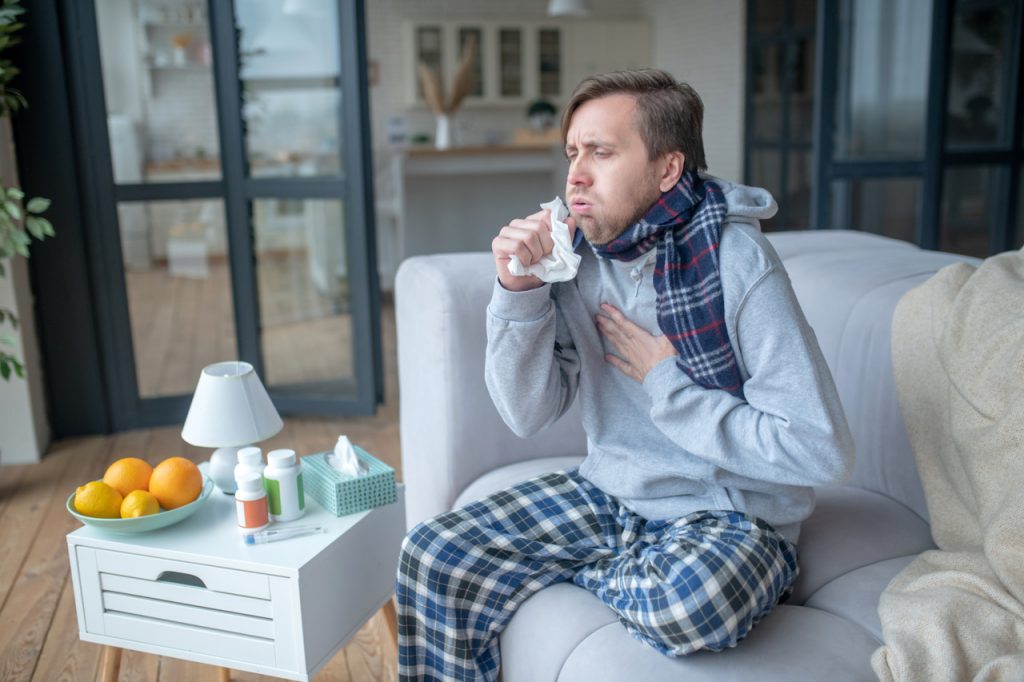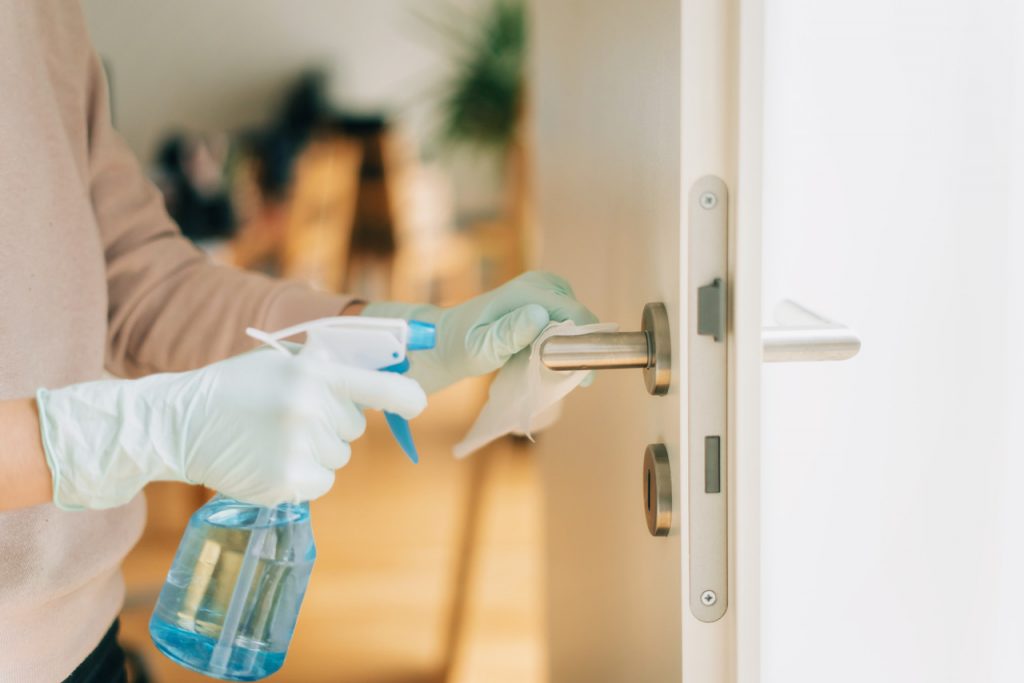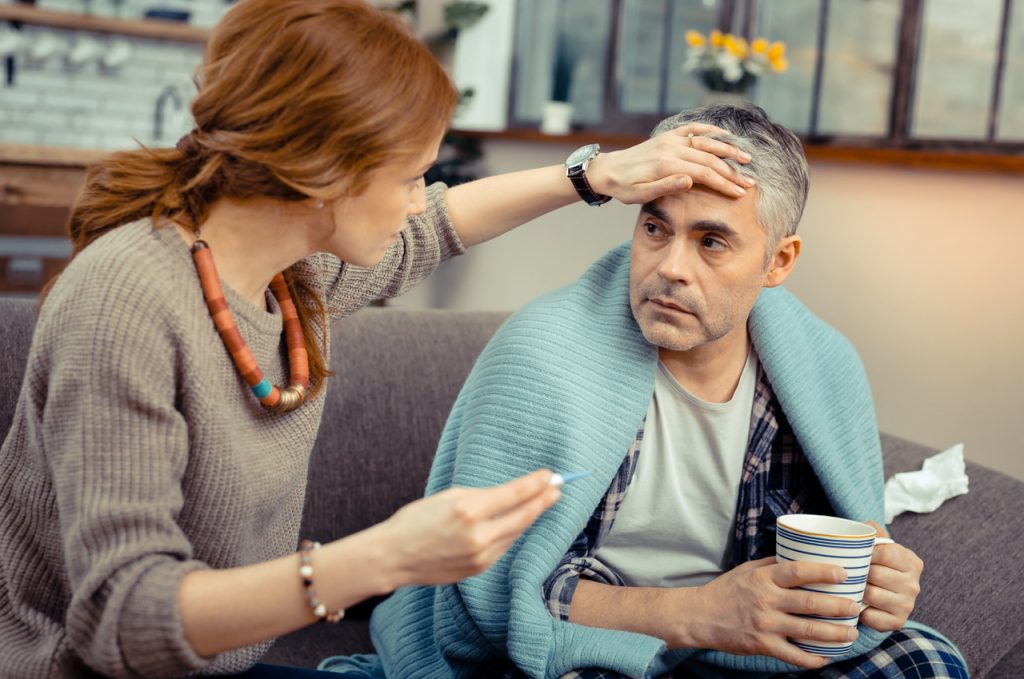There is a bit of good news for those mildly sick with COVID 19; most people recover within two weeks. Data on recovery lags behind the daily totals and rarely makes the news. When you look at the Johns Hopkins COVID-19 map keep this in mind. The same is true if you are checking your state’s Public Health website. Since the beginning of the pandemic the data suggests recovery occurs about 80 percent of cases.
The lack of mass testing in communities is one reason these numbers may have considerable variability. There are people who have had, and are currently experiencing the symptoms of, the milder form of the infection. Even when contacting their clinic or primary care office most are told there is no test available or needed and to monitor their symptoms at home. The Public Health departments in some states/communities may be requesting residents take an online survey to better understand how many people may have experienced symptoms but did not need or receive care.
Miserable at Home
 Commonly described symptoms of COVID include generalized ache, fatigue, and a cough. Fever is not always present. When you are left feeling terrible how do you know if you need to seek medical care?
Commonly described symptoms of COVID include generalized ache, fatigue, and a cough. Fever is not always present. When you are left feeling terrible how do you know if you need to seek medical care?
Because this is an aggressive respiratory virus, if breathing becomes more labored and there may be a heaviness or sense of pressure in the chest then seek help.
If you are monitoring someone who is ill, but you are not ill and you notice they seem to be confused at times, this is also a warning sign for further evaluation.
The CDC Self-Assessment page also offers a link to a survey where you can enter data about symptoms. This can be used to gain further understanding about the milder forms of this virus.
Safe Practice at Home
 In short, if you are ill or someone in your household is ill, you need to become compulsive about cleaning common areas and hand washing.
In short, if you are ill or someone in your household is ill, you need to become compulsive about cleaning common areas and hand washing.
- Use cleaning gloves
- Clean all door handles and switches daily
- Clean TV remote if used
- Clean the mobile phone
- Place used tissues in a trash bag daily and remove from living space if possible
- Clean kitchen and bath counters daily pay attention to faucet handles
- Place dishes and glasses in dishwasher and use it daily if this is not an option place dishes in the sink with hot soapy water
- Wash laundry and linens in warm water and use the dryer if possible, towels and wash cloths used once then place in laundry
- Cardboard boxes from deliveries should be removed from house as quickly as possible and use gloves for open the box as virus can reside on boxes for a longer period of time than on plastic bottles and stainless steel. See our post describing the research on these items.
Routine cleaning supplies are fine for initial clearing of surface areas. However, it’s important to also disinfect counters, water faucets, and items like phones, mobiles and door handles. The CDC provides a list of approved disinfectants. You can also use diluted bleach (not the bleach that is safe for colors) and alcohol of 70% strength.
The principle underlying all the cleaning is to decrease the virus load on surfaces to prevent re-infecting yourself. The droplets from coughing and sneezing carry the virus using tissues will help but they are also contaminated and should be placed in lined trash can as soon as they are used.
Creating a routine of cleaning chores daily is important upkeep to minimize the virus if you or someone in your home has COVID 19. Afterall, the virus is evident all the time. The infected person should have their own room, if possible. Linens, clothing and such is best washed separate from other laundry.
CDC Care at Home provides an overview of self-care and reminds everyone to call their healthcare provider if symptoms progress or worsen.
A Reminder from Infection in the 1940s. This is a delightful review from a grandfather’s text on Infectious disease. The principles then are still evident today in the recommendations for managing contamination.
Share Recovering Tips
 The coughing, sneezing and aches will slowly disappear, knowing this is helpful to a point. Herein lies the ability of the mind to help the immune system wage battle with the unwelcome invader. Suggestions from others are listed here and we hope you will share us with strategies that have helped you as you recovered.
The coughing, sneezing and aches will slowly disappear, knowing this is helpful to a point. Herein lies the ability of the mind to help the immune system wage battle with the unwelcome invader. Suggestions from others are listed here and we hope you will share us with strategies that have helped you as you recovered.
- Keep a daily log of your temperature, how you feel, and if symptoms are changing
- Detach from the news on TV and Social Media
- Read a novel and watch a comedy
- Call someone you’ve missed speaking with for awhile

Share Your Recovering Tips: